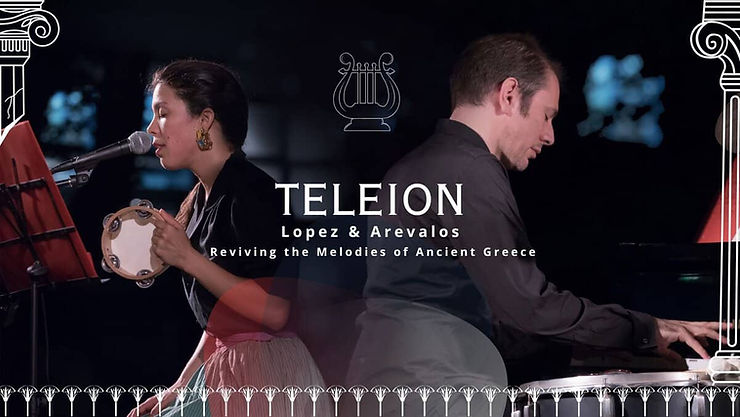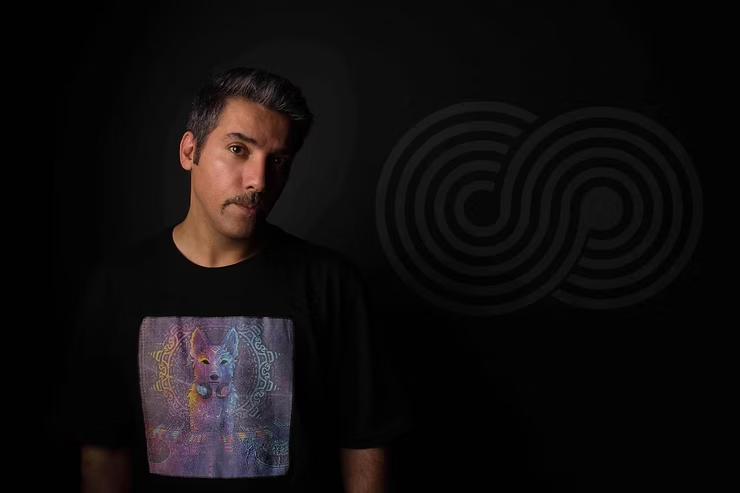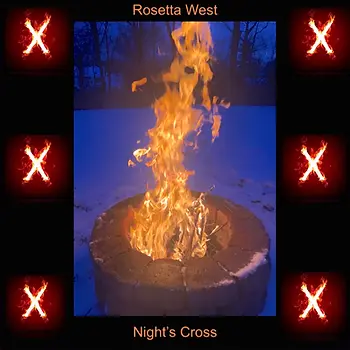Music is one of humanity’s oldest art forms, a universal language that has echoed through time, yet much of it has been lost. Ancient Greek music, in particular, is a mysterious and fragmented relic of the past. While Greek sculpture, philosophy, and literature have been preserved, the music that once resonated through temples, theaters, and symposia remains largely elusive. However, through a careful process of reconstruction, Lopez & Arevalos have brought a part of this lost world back to life in TELEION, a remarkable album that offers a rare glimpse into the musical soul of ancient Greece.

What Do We Know About Ancient Greek Music?
The ancient Greeks placed immense value on music, considering it an essential part of life, education, and spirituality. It was present in religious rituals, public festivals, theater, and private entertainment. Philosophers like Plato and Aristotle discussed its moral and emotional power, while musicians and poets composed melodies that were deeply intertwined with poetry and drama.
However, unlike literature and visual art, music is ephemeral—once played, it vanishes unless recorded. Since the Greeks did not have modern notation systems, what survives today are only scattered fragments of their musical tradition. These remnants include carved inscriptions on stone, a few papyrus sheets, and references in ancient writings that describe scales, modes, and instruments.
One of the most significant discoveries is the Seikilos Epitaph (c. 100 BCE), the oldest complete piece of notated music known to exist. Other notable pieces include the Delphic Hymns and fragments from Euripides’ plays. Despite their incompleteness, these traces provide valuable insights into how music sounded in antiquity.
The Journey of Lopez & Arevalos: Breathing Life into the Past
vocalist Camilla Lopez and the composer and pianist Matteo Ramon Arevalos embarked on a mission to reconstruct and reinterpret these ancient musical fragments, creating TELEION, an album that bridges past and present. This was no easy task—the surviving notations are rudimentary, consisting of symbols placed above Greek texts that indicate relative pitch but lack rhythm or tempo indications.
To fill in these gaps, Lopez & Arevalos studied historical sources, experimented with different interpretations, and used a blend of classical, traditional, and modern techniques. Their goal was not merely to play ancient music but to revive its spirit. By combining historical accuracy with artistic intuition, they have crafted an album that allows contemporary audiences to experience echoes of a world long gone.
The Meaning of “TELEION”
The title TELEION (τέλειον) is a Greek word that means “perfect,” “complete,” or “fulfilled.” In ancient Greek philosophy, it referred to something that had achieved its highest form or ultimate purpose. In the context of the album, TELEION represents the completion of an artistic and historical journey—a musical revival that brings these ancient compositions as close to their original essence as possible.
The Fragments of Ancient Music and the Transcription Process
Ancient Greek music survives mainly in the form of inscriptions on stone, papyrus fragments, and theoretical writings by philosophers and musicologists like Pythagoras and Aristoxenus. These sources describe modes (similar to modern scales) and instruments like the lyre, aulos (a double-reed flute), and kithara.
Lopez & Arevalos approached these remnants with both scientific rigor and artistic sensitivity. They transcribed melodies from surviving fragments such as the Delphic Hymns, the Seikilos Epitaph, and the Hymn to Nemesis, adapting them for modern instruments while preserving their ancient character. The album features vocals alongside piano, prepared piano, shruti box, tanpura, glass beads, and other instruments to recreate the textures of ancient soundscapes.
Critical Acclaim and Reception of TELEION
The album has received widespread praise for its originality and historical significance. Critics have highlighted its ability to transport listeners to another time while maintaining an emotional depth that resonates today.
- Indie Boulevard described TELEION as “a gem in the world of music that should be cherished and passed down from generation to generation.”
- Alt77 praised the careful interpretation of the music, stating, “All of these things keep it alive.”
- Sinusoidal Music called the album “a Pandora’s box of magic in music form” and commended its haunting beauty and depth.
Listeners have also expressed admiration for the duo’s ability to blend scholarly precision with artistic expression, creating an album that is both historically enlightening and deeply moving.
Final Thoughts: A Journey Worth Taking
TELEION is not just an album—it is a doorway into the past, an invitation to experience a lost world through sound. Lopez & Arevalos have succeeded in crafting a work that is both historically meaningful and artistically captivating. The music may be ancient, but its emotions are timeless.
For those interested in history, mythology, or music’s power to transcend time, TELEION is an essential listen. It reminds us that, though centuries may separate us from the past, music has an enduring ability to connect us to the souls of those who came before.
Listen to TELEION and many other contemporary musical gems on Tunitemusic’s playlist on streaming services dedicated to “Contemporary Classical”
#Teleion #LopezArevalos #AncientGreekMusic #GreekMythology #HistoricalMusic #MusicArchaeology #LostSounds #AncientMusicRevival #Ethnomusicology #SeikilosEpitaph #DelphicHymns #ExperimentalClassical #MythologicalMusic #Tunitemusic #CulturalHeritage #TimelessMelodies #RediscoveringHistory #AncientEchoes #MusicalTimeTravel #HistoricalReconstruction







